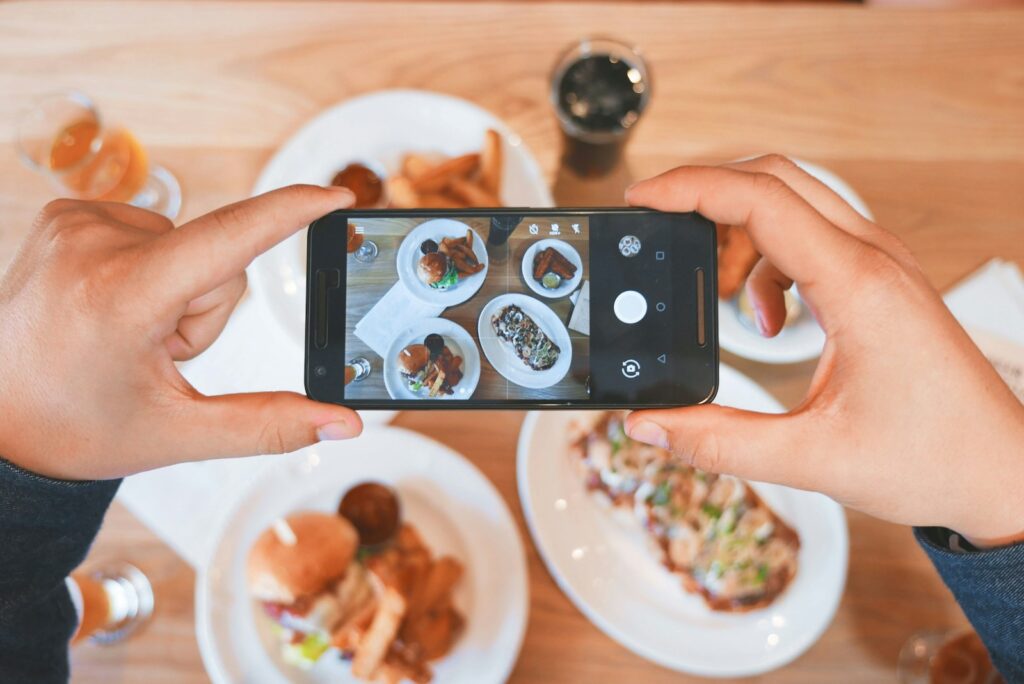In today’s digital age, the question of whether a restaurant needs a website is more relevant than ever. With the rise of social media and online food delivery platforms, some restaurateurs might wonder if a dedicated website is still necessary. In this blog post, the web design experts at 714WEB discuss the importance of having a website for your restaurant and why it’s a crucial tool for success in the competitive culinary landscape.
Key Takeaways:
- A website serves as your restaurant’s primary online presence
- It provides essential information to potential customers
- A professional website enhances credibility and trust
- Websites facilitate marketing efforts and customer engagement
- Visual appeal through a website can significantly influence dining decisions
Top Reasons Why a Restaurant Needs a Website
Online Presence and Visibility
In an era where most diners turn to the internet before deciding where to eat, having a strong online presence is crucial. A website serves as your restaurant’s digital storefront, making it easy for potential customers to find and learn about your establishment. Research shows that 77% of people visit a restaurant’s website before deciding to dine there or order food. Without a website, you risk being overlooked in favor of competitors who have established their online presence.

- Increases visibility in local searches
- Helps potential customers discover your restaurant
- Provides a central hub for all your online marketing efforts
- Allows you to control your restaurant’s narrative and brand image
Information Accessibility
One of the primary functions of a restaurant website is to provide essential information to potential diners. A well-designed website should offer easy access to crucial details such as:
- Menu with prices and descriptions
- Location and directions
- Hours of operation
- Contact information
- Reservation options
By making this information readily available, you reduce the number of phone inquiries and allow customers to make informed decisions about dining at your establishment. Additionally, your website can showcase special promotions, events, and seasonal offerings, keeping your audience engaged and informed.
Credibility and Trust
In today’s digital landscape, a professional website is often seen as a mark of legitimacy for any business, including restaurants. Many consumers view the absence of a website as a red flag, potentially indicating an untrustworthy or amateur operation. A well-designed, informative website can:
- Establish your restaurant’s credibility
- Convey professionalism and attention to detail
- Showcase your commitment to customer service
- Highlight positive reviews and testimonials
“In the restaurant industry, where trust is paramount, a professional website serves as a powerful tool to build credibility and set your establishment apart from the competition,” say the experts at 714WEB.
Marketing and Customer Engagement

A website is an invaluable asset for your restaurant’s marketing efforts. It allows you to implement various digital marketing strategies, including:
- Search Engine Optimization (SEO) to improve visibility in search results
- Content marketing through blog posts, recipes, or chef interviews
- Email marketing campaigns to promote special events or offers
- Integration with social media platforms for broader reach
Moreover, your website can facilitate online ordering and reservations, catering to the preferences of modern consumers who often prefer digital interactions over phone calls. This convenience can significantly enhance customer engagement and loyalty.
Visual Appeal and Menu Showcase
One of the most compelling reasons for a restaurant to have a website is the opportunity to showcase your culinary creations visually. High-quality images of your dishes can have a powerful impact on potential diners, influencing their decision to visit your restaurant. Your website allows you to:
- Display professional food photography
- Highlight signature dishes and seasonal specials
- Showcase your restaurant’s ambiance and decor
- Present your menu in an visually appealing and easy-to-navigate format
The power of visual marketing should not be underestimated in the food industry, where appearance can be just as important as taste in attracting customers.
Mobile Responsiveness: A Must-Have Feature
In today’s mobile-first world, ensuring your restaurant’s website is optimized for smartphones and tablets is crucial. Many potential customers will access your site on-the-go, making mobile responsiveness a non-negotiable feature. A mobile-friendly website:
- Improves user experience for mobile users
- Enhances your search engine rankings
- Increases the likelihood of conversions (bookings or orders)
- Reflects positively on your brand’s modernity and customer-focus
Can Social Media Replace a Website?

While social media platforms are valuable tools for restaurant marketing, they should complement rather than replace a dedicated website. Here’s why:
- Limited control: Social media platforms can change their algorithms or policies at any time, potentially affecting your visibility.
- Professionalism: A website offers a more professional and comprehensive representation of your brand.
- SEO benefits: Websites provide better opportunities for search engine optimization and local search visibility.
- Detailed information: Websites allow for more in-depth content and information than most social media platforms.
Contact the Restaurant Web Design Experts at 714WEB
At 714WEB, we understand the unique needs of the restaurant industry when it comes to web design. Our team of experts specializes in creating stunning, functional websites that showcase your restaurant’s unique personality and offerings. With years of experience in custom web design for restaurants, we know how to create an online presence that not only looks great but also drives results for your business.
Whether you’re looking to launch a new website or revamp your existing one, our team is ready to help you create a digital experience that will delight your customers and boost your online presence. Contact us today for a free consultation and take the first step towards a website that truly represents your restaurant’s excellence.
Frequently Asked Questions About Restaurant Website Design
Regular updates are crucial to keep your website fresh and relevant. At a minimum, you should update your website whenever there are changes to your menu, hours, or contact information. It’s also beneficial to update content regularly, such as adding new photos, blog posts, or special promotions. Aim for at least monthly updates to keep your site current and engaging for repeat visitors.
While it’s possible to create a basic website yourself using website builders, hiring a professional can often lead to better results, especially for restaurants where visual appeal and functionality are crucial. Professional designers bring expertise in user experience, SEO, and responsive design, which can significantly impact your website’s effectiveness. Consider your budget, time constraints, and technical skills when making this decision.
Glossary
SEO (Search Engine Optimization): The practice of optimizing a website to increase its visibility for relevant searches in search engines.
Responsive Design: A web design approach that ensures a website looks and functions well on various devices and screen sizes.
User Experience (UX): The overall experience of a person using a website, especially in terms of how easy or pleasing it is to use.
Content Management System (CMS): A software application that allows users to build and manage a website without needing specialized technical knowledge.
Conversion Rate: The percentage of website visitors who take a desired action, such as making a reservation or placing an order.